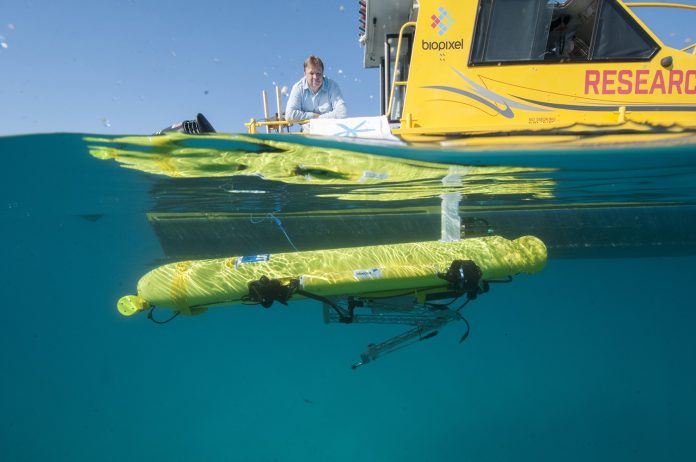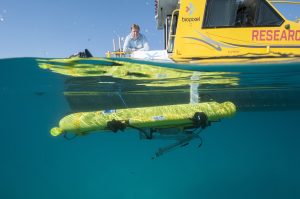
Image credit: www.qut.edu.au
The Great Barrier Reef Foundation’s project for developing a low-cost ‘robo reef protector’ has received an overwhelming support by the public and by Google.

Image credit: www.qut.edu.au
The Foundation’s project, which is being developed in collaboration with QUT roboticists Drs Matthew Dunbabin and Feras Dayoub, has won a $750,000 people’s choice vote in the Google Impact Challenge Australia, a competition that helps not-for-profit organisations develop technologies to address the world’s biggest social challenges.
Foundation Managing Director Anna Marsden explained that the project is looking to build on the successful COTSbot platform to create the RangerBot, a low-cost autonomous underwater vehicle built with innovative vision-based technologies rather than acoustic technologies found in current single-purpose marine robots.
“We want to empower communities on the front line of coral reef management with an affordable, versatile tool for monitoring and managing a wide range of marine issues,” she said.
“More than one billion people depend on reefs for their food and livelihood but often those people live in poorer communities and don’t have access to environmental funding or programs. We’re very grateful the world shares our vision, so generously voting to protect reefs around the globe.”
The funding will be used to reduce the size and cost of QUT’s COTSbot, which was designed to increase the efficiency of Crown-Of-Thorns Starfish (COTS) eradication.
It will also allow the team to add a suite of vision-based sensors and develop a range of attachments to tackle various monitoring and management activities.
Dr Dunbabin, whose passion is environmental robotics, thanked everyone who voted for the project in the Google Impact Challenge.
“It’s a tremendous honour for the public to recognise the importance of our work and the impact it can have on our world and our marine environment,” he said.
“We wouldn’t be here without the support of the Great Barrier Reef Foundation, an organisation truly dedicated to reef conservation.”
According to him, the RangerBot will be capable of staying underwater almost three times longer than a human diver, with an ability to gather vastly more data, map expansive underwater areas at scales not previously possible, and operate in all conditions and all times of the day or night.




















